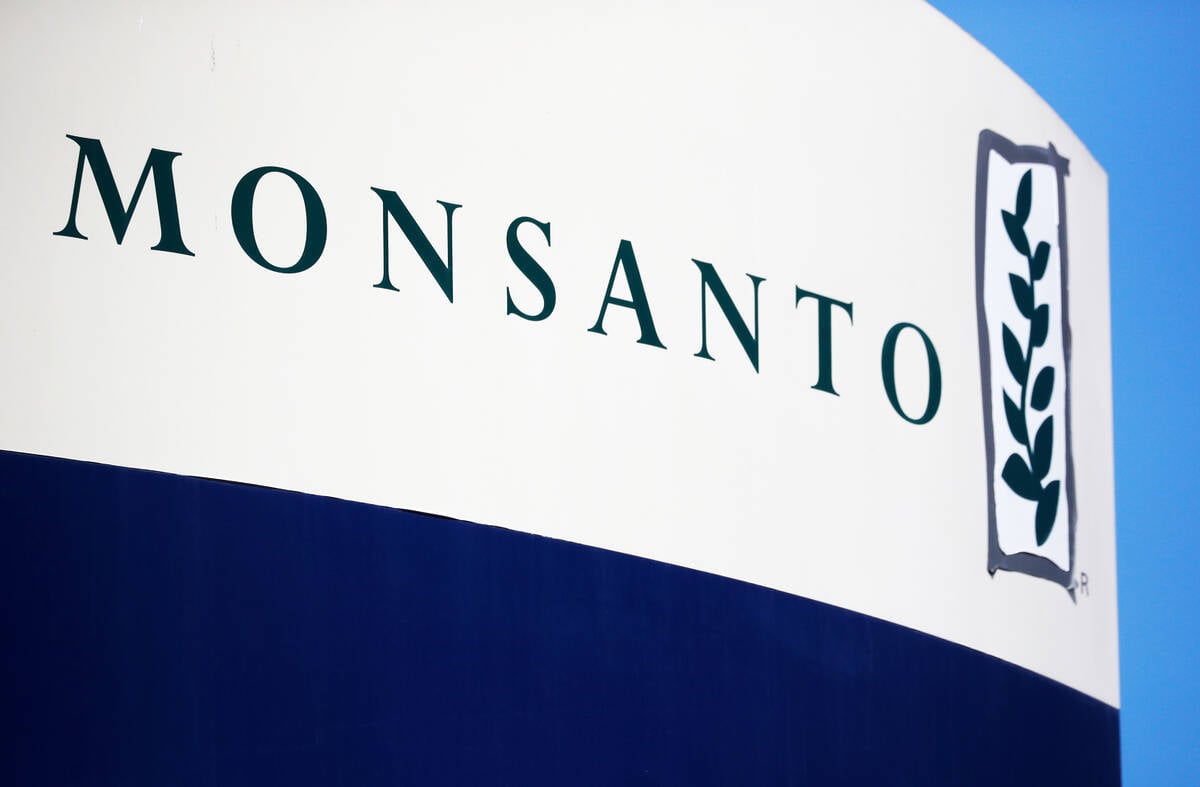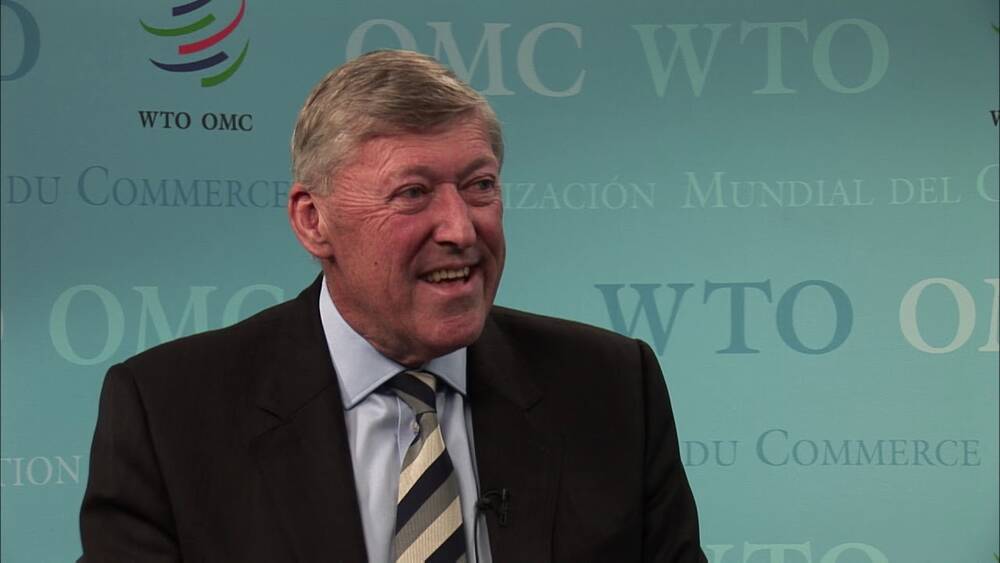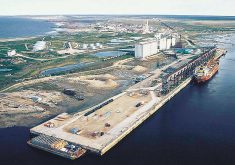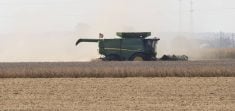There’s been a lot of sound and fury recently over the prospect of punitive tariffs imposed by the U.S. on Canadian goods.
President-elect Donald Trump has said he’ll apply 25 per cent levies on Canadian and Mexican goods flowing into the U.S. as of Jan. 20, his inauguration day, unless moves are made to lessen the flow of illegal drugs and migrants into the U.S.
Why it matters: Canadian agriculture sectors are looking for a road map to address trade issues if Trump goes ahead with economically damaging tariffs.
Read Also

Journal pulls long-cited glyphosate study for ethics violations
The journal Regulatory Toxicology and Pharmacology has retracted a 2000 Monsanto-linked glyphosate review, drawing new scrutiny as Bayer faces mounting legal pressure.
A leading researcher with an agriculture-focused think tank says what it really boils down to is trying to predict the unpredictable. If it were a purely economic question, the result would likely be all but pre-ordained.
Al Mussell, with Ontario-based Agri-Food Economic Systems, says that in more ordinary times, a U.S. president-elect would propose a policy like this and find significant opposition from the business community. They’d find themselves fielding phone calls from Fortune 500 CEOs, worried the move would kill their businesses and force layoffs.

“In a typical situation, the president would be listening to that, and you would think would be responsive to it,” Mussell said. “In this case, I don’t know. He may not be that responsive.”
And there’s not much Canada can do about it, at least in the short term. Building trade alliances with other “middle powers” or expanding economies could soften the blow, but that will take time, said Mussell.
Co-dependency
Canada’s chief negotiator of the North American Free Trade Agreement has a more optimistic tone.
“Don’t panic,” says John Weekes, speaking recently to Glacier FarmMedia.
While the tariffs sound alarming, Weekes said he would be “very surprised if he were to put on 25 per cent tariffs. There’s even a question of what would allow him to do that.”
Weekes doesn’t know of any U.S. legislation that would permit such sweeping tariffs, and he doubts U.S. Congress would approve blanket tariffs that blatantly violate the current U.S.-Mexico-Canada Agreement. He doubts Trump himself would be willing to crumple up the deal and throw it in the trash.
“This was an agreement that Trump negotiated, that he called the best agreement ever negotiated, and I would be very surprised if he walked away from it,” says Weekes.
Trump’s team considers USMCA a template for dealing with other trade partners.
“That gives you hope that they’ll respect this agreement.”

Ultimately, the two countries need each other’s resources and access to each other’s economies, Mussell says.
The agriculture sector is a microcosm of this co-dependency. Canada has no domestic phosphate production. The U.S. is the country’s anchor supplier. The U.S., on the other hand, can only meet a small fraction of its potash needs, while Canada is a global superpower. And many inputs, equipment, parts and farm products are the same, with tightly-integrated trade flowing in both directions across the border.
Mexico and Canada are by far the top two suppliers of farm products to the United States, with imports of agricultural goods valued at nearly $86 billion last year, according to U.S. Department of Agriculture and U.S. Customs data.
Duties on food shipments from both could cause jarring financial and operational ripple effects on U.S. supplies and highlight how reliant that nation has become on its neighbours to feed its population, economists said.
Tariffs could disrupt shipments of beef, dairy cattle and hogs between the U.S. and Canada, and potentially affect producers in both countries.
Manitoba alone sends about three million piglets each year to producers in Iowa, Minnesota, South Dakota and Nebraska, where feed corn can be sourced more cheaply, according to the Canada Pork Council and Manitoba Pork Council
Canada may have little in the way of “hard power” that economies the size of the U.S. or China have, says Mussell. What it does have is “soft power” embodied by its resources, or “in other words, things that other people need or want that Canada is well-endowed with.”
These include critical minerals that go into batteries and semiconductors, energy exports, water, crop inputs and agriculture and food products, Mussell says.
“To me that’s what’s unique about Canada.”
Branching out
How can Canada leverage those facts in the face of a U.S. presidency seemingly bent on having its way? Many have suggested expanding its portfolio of trade partners, few of which could replace the sheer amount of trade ($960.9 billion in 2022) the U.S. represents.
That said, Canada is on the right track with its Indo-Pacific strategy, says Mussell. It features a number of strategic objectives including expansion of trade, investment and supply chain resilience in countries that comprise the region.
Mussel noted that in recent years south and southeast Asia, including India and China, have been the main drivers of global economic growth .
“A lot of that leads very naturally into people wanting to improve their diets, particularly around proteins, but upgrade their diets in general,” Mussell says. “We have a lot to contribute to that.”
However, recent events have shown it won’t always be a smooth road.
Chinese importers are scaling back purchases of Canadian canola. Shipments may plunge because most buyers are reluctant to sign new deals in case Beijing imposes anti-dumping duties.
The canola trade between the two countries is worth about US$2 billion a year, but lower imports by China, the world’s biggest canola importer, could further squeeze ICE canola futures, which dropped more than 10 per cent in November.
That has Canadian canola producers facing a double whammy as China’s reduced buys coincide with Trump’s import tariff threats, say analysts.
“China has yet to impose any duties but it already has a desired impact as buying of Canadian canola has come to a standstill,” says a trader with an international company that sells oilseeds to China.
Mussell echoed former Canadian agriculture trade negotiator Steve Verheul on his suggestion that Canada form trade alliances with like-minded middle powers that play by rules-based philosophies.
“It doesn’t just automatically present itself so that tomorrow we can say, ‘oh well, if the U.S., China, India (or) whomever else does not want to play ball, we’ve got Japan and the U.K. and whomever else, we’ll just step into that.’ That has to be built,” Mussell said.
Stats may mean nothing
Weekes believes the key to the riddle lies in Trump’s social media post.
“He linked it with migration and drugs crossing the border,” he says. “Interestingly, he didn’t say anything about deficits or unfair trade practices.”
It is dangerous to try and interpret anything Trump says, Weekes adds, but he believes the president-elect is using the threat of tariffs to get Mexico and Canada to secure their borders, although “he has an unusual way of initiating a discussion.”
In the short term, Canada could compile statistics that counter Trump’s claims of mass immigration and fentanyl movement from Canada to the States. But how and to what end? Both are illegal activity, notes Mussell, and purveyors of illegal activity don’t keep statistics.
“There are no stats. It’s under the table. That’s the point.”
U.S. pushback
The decision to impose tariffs may come down to Trump’s own party.
That may seem like a tall order with the Republicans in control of both houses of Congress, but the party isn’t of one mind on all matters, says Mussell. Amid the MAGA loyalists, there are plenty of “traditional Republicans” and “traditional conservatives,” he noted.
There is also a recent precedent of Congress pushing against Trump. It balked at Matt Gaetz, Trump’s first choice to lead the Justice Department, on scrutiny over allegations of sex trafficking. Gaetz withdrew his name as a result of the furor.
“If things start running really off the rails, they have enough willingness and enough power that they can push back on the president,” says Mussell.
There’s also a chance Trump won’t respond to these criticisms, and technically he doesn’t have to, because tariffs can be determined by executive order in the U.S.
Weekes says Trump was often erratic and unpredictable during his first term as president, so anything is possible when it comes to the proposed tariffs. That is why he is glad Canada pushed for robust dispute settlement mechanisms in NAFTA and USMCA.
He believes a dispute panel would quickly determine Trump’s actions are illegal if he proceeds with the tariffs. That would open the door for Canada and Mexico to legally retaliate against the U.S.
Weekes believes Canada would not respond with blanket tariffs because that would not be in the best economic interests of the country. Canada would instead target politically influential sectors of the U.S. economy that have the ear of Trump and his administration.
However, a lot of bad things would have to happen to arrive at that undesirable scenario of a tit for tat trade war. In the meantime, Weekes is preaching that Canada’s agriculture and other sectors remain calm.
“We shouldn’t look like we’re desperate because the moment we do that, the way Trump operates, he’ll have us on the run,” he says.
Mussell says a big part of getting through the next four years of U.S.-Canada relations will be accepting the unknown.
-With files from Sean Pratt and Reuters
















